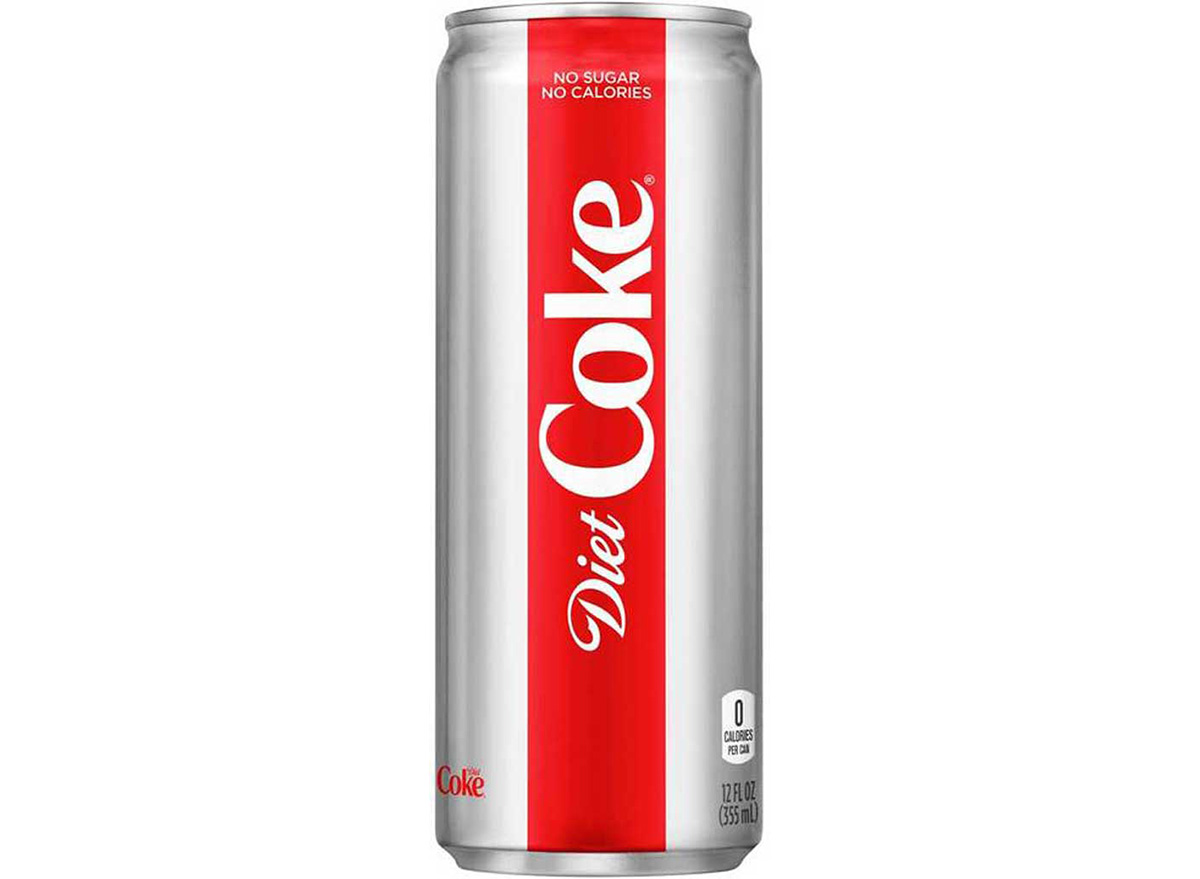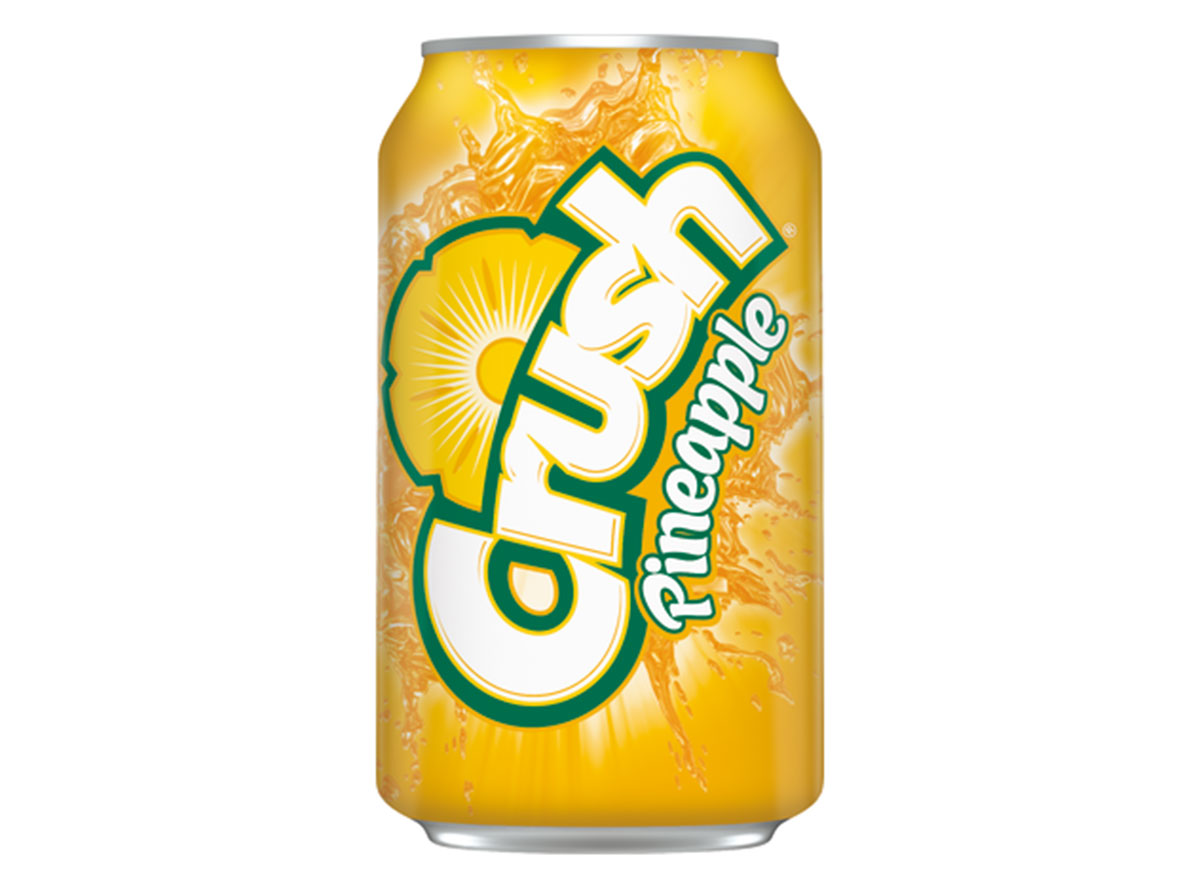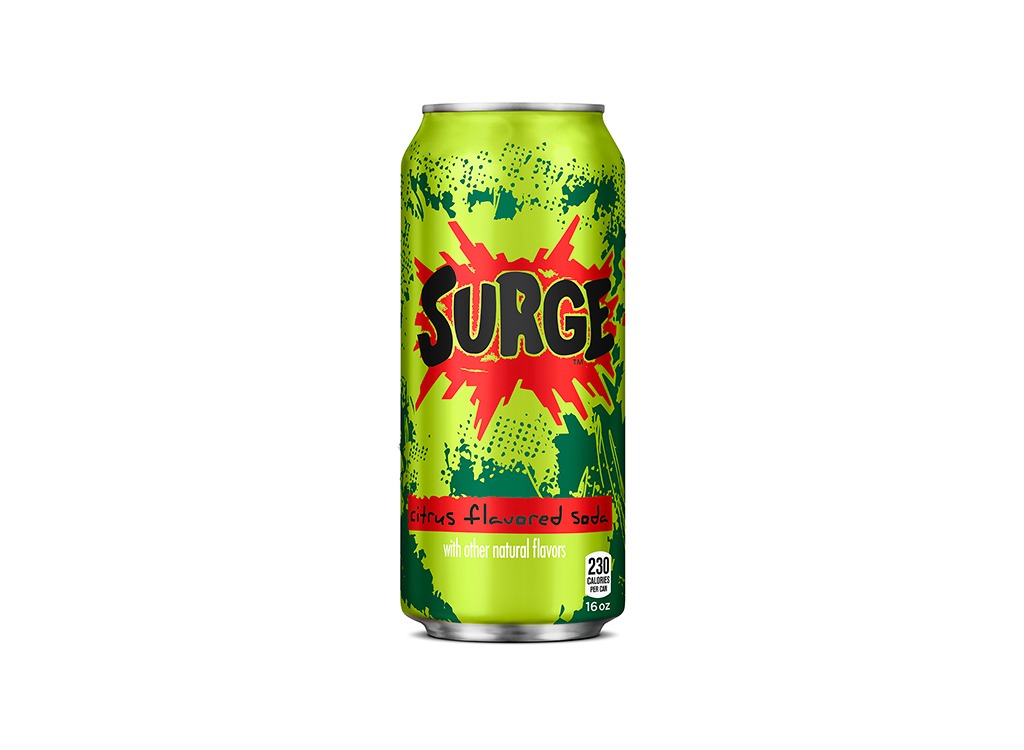Popular Sodas Proven To Cause Lasting Damage to Your Body, Says Science

Soda is fizzy, sweet, and overall pleasant to taste. And yet, it’s one of the most harmful beverages we can drink.
Soft drinks such as carbonated, caffeinated soda options are packed to the brim with added sugars, which can lead to a slew of chronic health conditions including heart disease, obesity, and diabetes if consumed in excess and often. Cracking open a can of root beer won’t put you at risk for health complications, however, sipping sugary equivalents as if they were water can potentially do some serious damage to your body.
Below, you’ll see just five sodas that have been shown to cause health complications. And after, don’t miss The 7 Healthiest Foods to Eat Right Now for quick tips on how you can clean up your diet.
Diet Coke

Let’s get one thing straight—Diet Coke is a better option than regular Coca-Cola for those who are trying to cut back on their sugar consumption. The sugar-free soda is sweetened with a sugar alternative called aspartame, which has been under fire since its debut in the 1980s for potentially causing cancer. However, research around the common artificial sweetener remains inconclusive, says the American Cancer Society. In fact, the only health problem aspartame has been conclusively linked to is people with a rare genetic disorder called phenylketonuria (PKU), as it contains phenylalanine—an amino acid that people with this condition cannot break down.
However, a 2008 study published in The Canadian Journal of Gastroenterology found that people who drank Diet Coke were more likely to have moderate to severe fatty infiltration in their livers than those who drank other sodas, such as Fanta and Sprite. Researchers believe aspartame was a key contributor to the development of nonalcoholic fatty liver disease (NAFLD), a condition where fat builds up in your liver and can lead to cirrhosis—late-stage liver scarring. Cirrhosis can eventually lead to end-stage liver failure if not addressed.
Bottom line: A diet coke from time-to-time won’t hurt you, however, drinking one or more cans each day may put you at risk of liver complications later down the road.
Coca-Cola

Similar to its diet counterpart, the same study also revealed that regular Coca-Cola—which includes ingredients such as high-fructose corn syrup and the food coloring, caramel—also triggered fatty liver disease in participants. Studies have shown that excessive intake of high fructose corn syrup, which is an artificial sugar made from corn syrup, can lead to insulin resistance—a condition that results in type 2 diabetes.
Consuming high amounts of high fructose corn syrup is also believed to play a role in the development of metabolic syndrome, which is linked to various health complications such as cardiovascular disease and even certain cancers. Not to mention, one 12-ounce can of Coca-Cola packs 39 grams of added sugars. For context, the American Heart Association (AHA) encourages limiting your added sugar intake to just 36 grams a day for men and 25 grams for women. Drinking just one serving of this beverage not only cancels out your daily intake but also sets you over the suggested amount.
Bottom line: Enjoy an ice-cold Coke here and there, but consider limiting your intake to just one or two cans per week tops.
Pepsi

Regular soda consumption can also cause obesity in both adults and children. According to a 2010 study published in the World Journal of Gastroenterology, which explored the effects carbonated, sugar-sweetened beverages like Pepsi had on various health outcomes, discovered a potential link between childhood obesity and soda consumption. The results from one particular study that was analyzed in this bigger study showed that after 12 months, the approximate percentage of overweight and obese children who partook in regular consumption of soda (primarily between meals) increased from 20% to 27.5%.
Bottom line: Children are not immune to the metabolic effects soda can have on their body and should limit consumption just as much as adults.
Get even more healthy tips straight to your inbox by signing up for our newsletter.
Crush Pineapple

Crush Pineapple may look bright and cheery, however, don’t be fooled—its vibrant yellow color is not derived from pineapple juice. Instead, that yellow hue is artificially produced by food dyes called Yellow 5 and Yellow 6. One 2015 study indicates that yellow 5, in particular, can damage the DNA on white blood cells, leading them to mutate over time. Of course, this experiment was performed on isolated cells in a petri dish, not ones in the human body.
Still, the dye has been shown to promote hyperactivity in children, so much so that a 2004 review from Harvard University and Columbia University concluded that, “removing artificial food colorings from the diets of children with ADHD would be about one-third to one-half as effective as treatment with methylphenidate (Ritalin).”
Bottom line: Avoid consuming food dyes as much as possible. While the FDA and top researchers have found that yellow 5 doesn’t pose an immediate threat to your health, plenty of research indicates that it could harm certain cells over time.
Surge Citrus Flavored Soda

Last but not least, the cult classic, citrus-flavored soda one of the worst sweetened beverages you could buy. Why? It only comes in one size, 16 fluid ounces, which also means that it packs way more sugar than what’s typical for a can of soda, clocking in at 55 grams of added sugar. According to a 15-year study published in JAMA Internal Medicine, it was found that participants who consumed 25% or more of their daily calories as sugar were more than twice as likely to die from heart disease than those who limited intake to less than 10%.
Bottom line: This drink alone already puts men and women well above the AHA’s suggested intake of added sugar, and regular consumption could ultimately shave years off of your life.
For more, be sure to read These Are the Sodas With More Sugar Than 4 Donuts, and for healthier alternatives, be sure to check out 25 Healthy, Low-Sugar Soda Alternatives.








